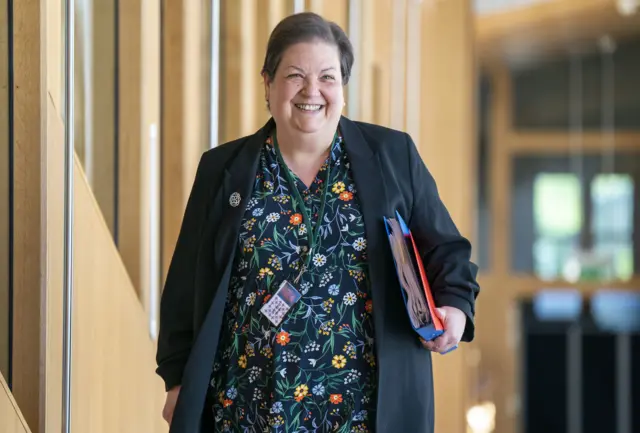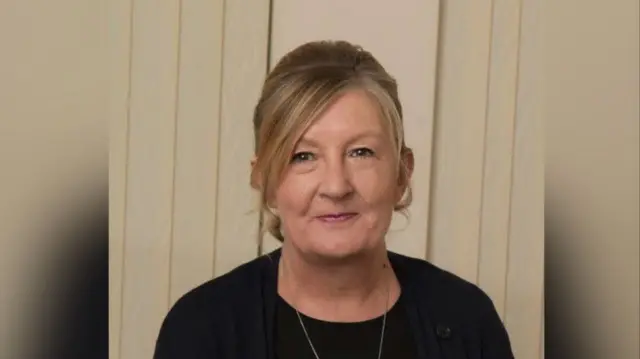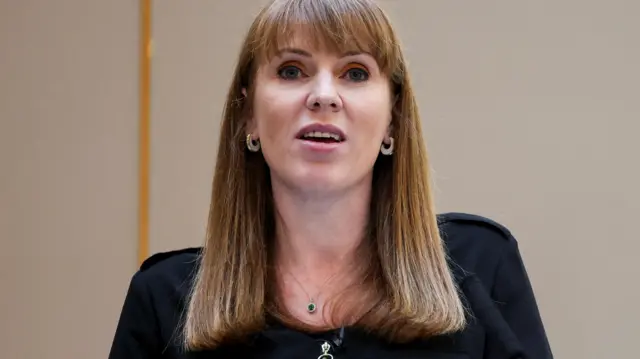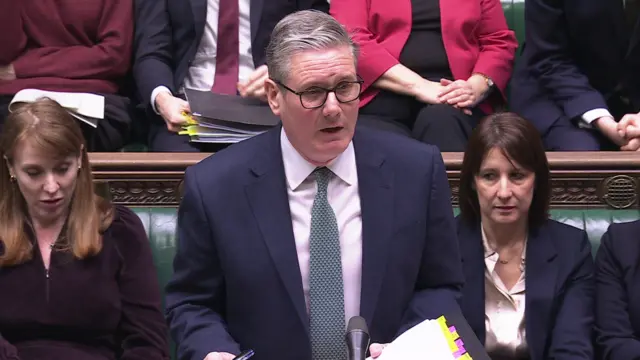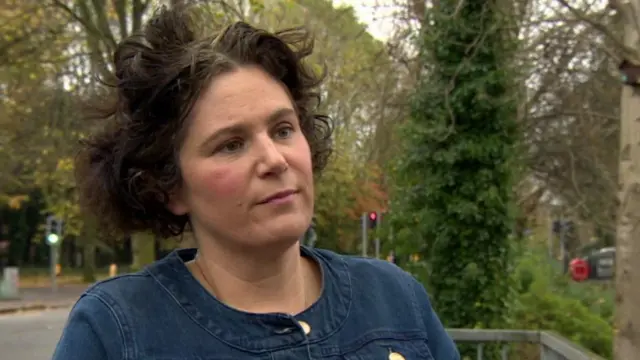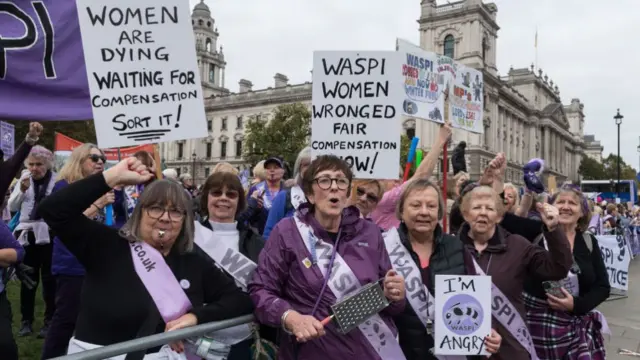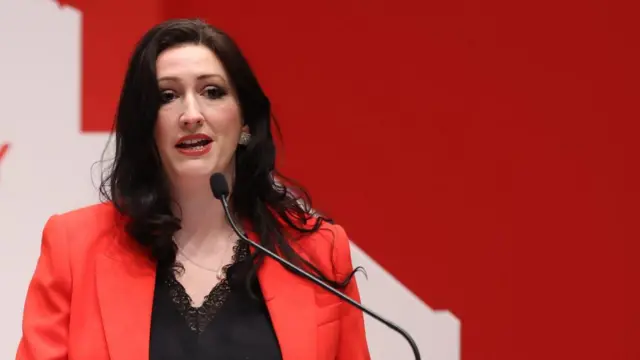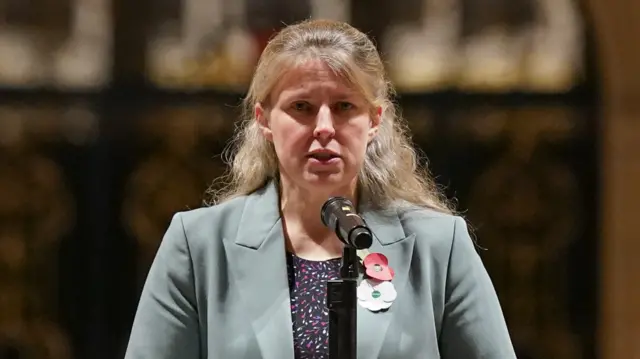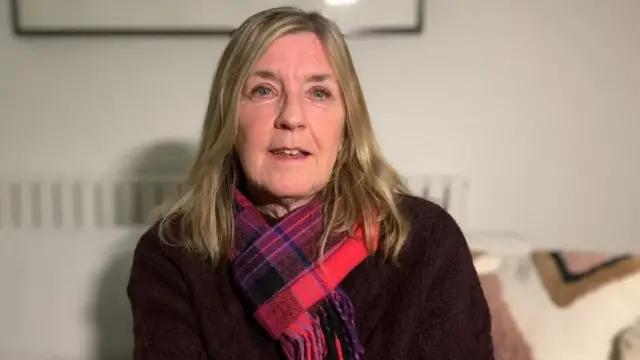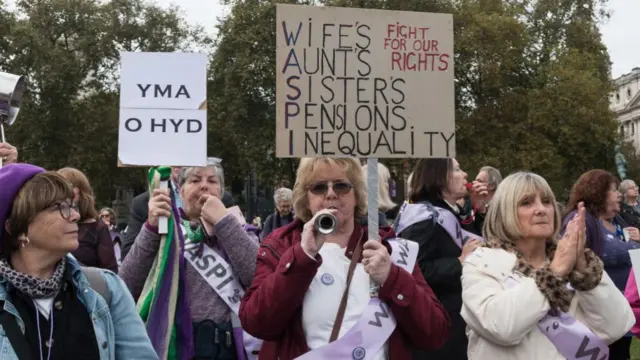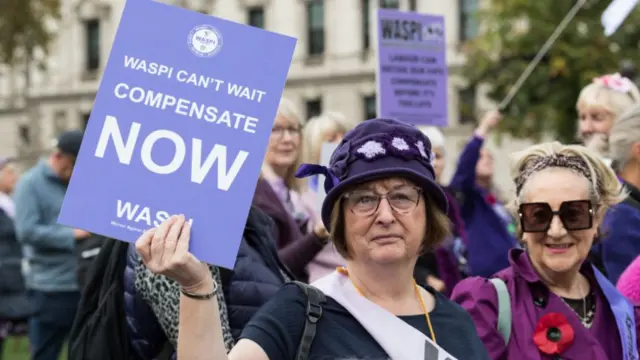Waspi women 'furious' as government says UK can't afford compensationpublished at 14:44 GMT 18 December 2024
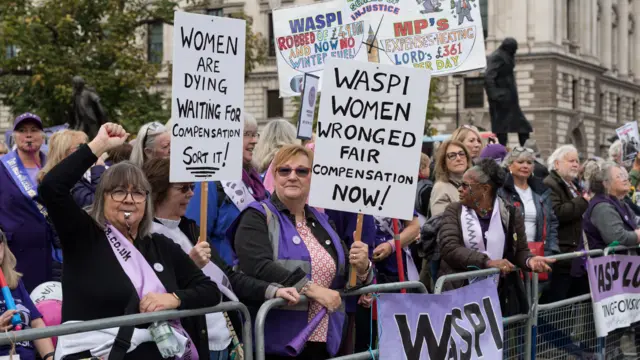
Yesterday the government announced it wouldn't pay compensation to Women Against State Pension Inequality (Waspi) women, following a change to the age at which women born in the 1950s can claim their pensions.
Today, we've been covering the reaction to that decision.
In March, the Parliamentary and Health Service Ombudsman (PHSO) had recommended the women be paid up to £2,950 each after it found "maladministration" in how the changing pension age was communicated.
But 90% of affected women knew about the change, Prime Minister Sir Keir Starmer told the Commons today.
Starmer, Chancellor Rachel Reeves and Work and Pensions Secretary Liz Kendall had been among those who backed the Waspi campaign when Labour was in opposition.
- The PM said delays in communicating changes to the state pension age for women born in the 1950s were "unacceptable"
- Campaigners say they've lost out on years of state pension, worth many thousands of pounds
- Women born in the 50s told BBC Radio 5 Live they were "furious" about the decision
- Conservative leader Kemi Badenoch said Starmer and his cabinet had been playing politics with Waspi women
You can read more about Starmer's position and the opposition's reaction in our article covering the decision. We're also looking at reaction from the women affected.
Thanks for joining us.
